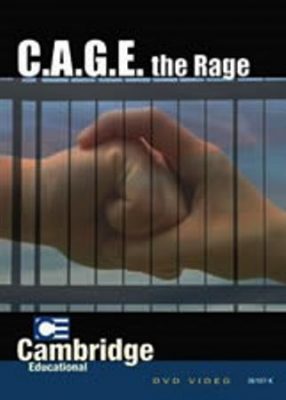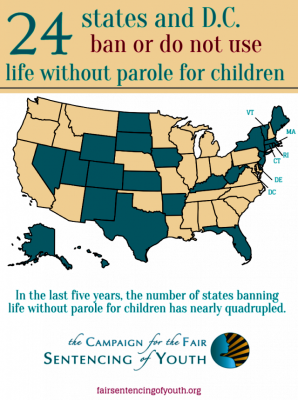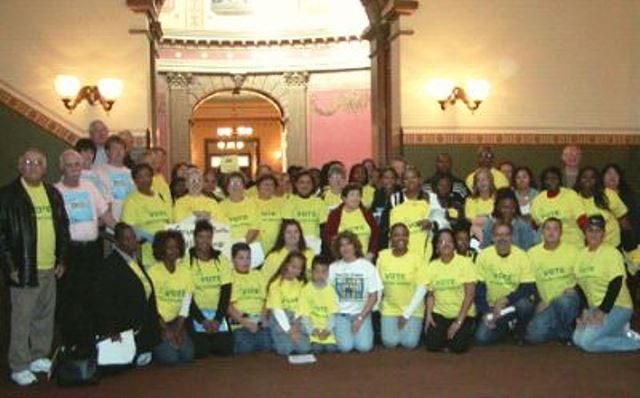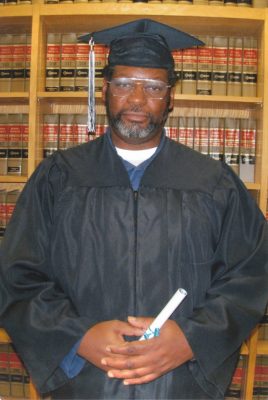(Above, Kimberly Simmons, one of only two women juvenile lifers released at the time, speaks at Juvenile Lifers for Justice rally in Detroit June 18, 2017.)
By Efren Paredes, Jr.
January 15, 2018
VOD note: This is an update from VOD’s previous article on the 6th Circuit ruling, at http://voiceofdetroit.net/2017/12/24/send-federal-troops-to-liberate-michigans-juvenile-lifers-6th-circuit-ruling-inadequate/

Efren Paredes, Jr.
The U.S. Sixth Circuit Court of Appeals (COA) recently made an important ruling on behalf of Michigan prisoners who received mandatory life without parole (LWOP) sentences when they were juveniles (“juvenile lifers”). The U.S. Supreme Court ruled in 2012 that mandatory LWOP sentences for juvenile offenders are unconstitutional. The high court subsequently issued another opinion in 2016 which made their 2012 ruling retroactive and applicable to all 2,500 prisoners in the nation serving the draconian sentence.
The recent U.S. Sixth COA ruling states that these prisoners will now be required to receive good time and/or disciplinary credits depending on the year of their conviction. This will change when they become eligible to pursue a meaningful opportunity for parole consideration based on positive behavior.
Juvenile lifers are also now eligible to participate in rehabilitative programming that they have been denied for decades. Previous to the court’s ruling prisoners serving shorter sentences have been provided an array of programs that juvenile lifers have been denied. The programs they will now become eligible for include Violence Prevention Program, Cage Your Rage, Thinking 4 Change, vocational trades, etc. The new court ruling ends these discriminatory practices and recognizes the right of juvenile lifers to equal protection.
 The U.S. Sixth Circuit COA ruled against the issue raised by attorneys representing juvenile lifers seeking a categorical ban on imposing LWOP sentences on juvenile offenders on procedural grounds.
The U.S. Sixth Circuit COA ruled against the issue raised by attorneys representing juvenile lifers seeking a categorical ban on imposing LWOP sentences on juvenile offenders on procedural grounds.
It is an issue that will persistently be raised in the U.S. Supreme Court by attorneys representing juvenile lifers from various states until a total ban is granted and the issue is finally resolved. Attorneys have already begun petitioning the high court seeking the ban and more are preparing to do so.
While the recent U.S. Sixth Circuit COA ruling is not a panacea to unravel all the juvenile lifer legal challenges before them it is a major decision that will have a profound impact on re-shaping the contours of Michigan criminal justice reform relating to juvenile offenders.
The U.S. Sixth Circuit COA ordered Judge John Corbett O’Meara of the U.S. District Court in the Eastern District of Michigan to expeditiously resolve the matter consistent with the court’s ruling. Judge O’Meara will now draft a court order specifying the details of what the State of Michigan must do to comply with the appellate court ruling as early as this month.
The Michigan legislature will also be required to revise MCL 769.25 to reflect the changes made by the U.S. Sixth Circuit COA as well. When they do it would be wise to also do two additional things that would make the sentencing process more reasonable, conserve valuable time and state employee resources, and save taxpayers millions of dollars when resentencing the remaining 260 juvenile lifers.

Earlier map of states banning JLWOP. SInce then, six more states have joined the movement.
First, it should join the [30] other states across the country and the 192 nations of the world [all but the U.S.] who have banned LWOP sentences for juvenile offenders. In the past six years nineteen states have abandoned LWOP sentences for juvenile offenders and the number keeps growing. The U.S. Supreme Court is likely to categorically ban the practice in the coming year.
Our state legislators should stand on the right side of history now rather than be compelled to make the right decision later. Remaining obstinate and tone deaf to this issue will burden taxpayers with millions more dollars in wasteful spending for repeating hundreds of resentencing hearings. It would also force victims’ families to continue down the painful road of reopening wounds and revisiting tragedies in their lives through unnecessary court hearings and appeals. Many of these families have been trying to move on with their lives without exacerbating their pain and being encumbered with decades of court hearings and appeals.
Second, the legislature should revise the sentencing guidelines for juvenile lifer term-of-year sentences from a 25- to 40-year minimum to a 15- to 30-year minimum. They should also revise the currently allowed maximum term-of-years from 60 years to a maximum of 40 years. If the 60-year maximum term is not reduced there will be additional years of protracted costly court battles asking courts to rule that 60 years is a veritable death sentence since it exceeds the life span of the average juvenile lifer. Other states have already ruled that such sentences are inordinate and deemed cruel and unusual punishment.
Alternatively, the legislature can convert the sentences of the remaining 260 juvenile lifers awaiting resentencing hearings to sentences of 15-year minimums to 40-year maximums all at once. It would save the state millions of dollars for resentencing hearings. Since nearly all the juvenile lifers are indigent all court expenses including attorney fees, expert witnesses, etc., will be paid for by taxpayer dollars. Conservative estimates place the price tag around $26 million to pay the fees for the 260 prisoners still awaiting resentencing.

Families AND victims of Michigan juvenile lifers who testified at state legislature before Miller decision in 2004. They asked legislators to bar juvenile life without parole period.
This move alone would not release a single prisoner. It would only give the Parole Board jurisdiction to begin reviewing their cases for release consideration annually after they have served a minimum of 15 years. The Parole Board would utilize their wealth of resources to decide when the prisoners merit release based on their conduct just as they do for over 10,000 other prisoners they safely release annually. The Parole Board will not release prisoners until they are satisfied they pose no risk or danger to public safety.

“Only the rarest child” should be sentenced to die in prison. — USSC; this family attended Juvenile Lifers for Justice Rally June 18, 2017.
In fact, the Parole Board could keep juvenile lifers incarcerated for up to 40 years under this sentencing scheme if the Parole Board is not comfortable releasing them until that time. By then most juvenile lifers would range in age between 55- and 57-years old after being behind bars since their mid-teens.
If we are to illogically believe that juvenile offenders are not capable of change, by that same standard we will have to believe no adult is capable of change and deserves a second chance either. After all, each adult who receives a second chance in life was once a teenager. Michigan should become a leader in criminal justice reform rather than lag behind other states. We can not lead from behind. We are being looked upon with shame and disappointment for our woefully failing record of human rights abuses against juveniles, the poor, and people of color.
It is a stain we can begin to slowly wash away by making decisions that respect the concept of redemption and inherent dignity of youthful offenders.
(Efren Paredes, Jr. is a blogger and social justice activist who appears as a weekly guest on Detroit Superstation 910 AM. You can learn more about Efren at www.fb.com/Free.Efren and www.4Efren.blogspot.com.)
UPDATED COMMENT FROM CORTEZ DAVIS-EL, VOD STAFF WRITER

Cortez Davis-El, still incarcerated at Thumb
After reading the opinion from the 6th Circuit in the Hill v Snyder case, I have conflicting feelings. While I would like to be excited and thankful, I’ve been built up just to be let down so many times I don’t want to give in to the excitement and be hurt in the end. Having said that. I think that the opinion was a well written much needed boost of hope. I would have liked for the 6th Circuit to end this debate instead of remanding the case and issues back to the Eastern District Federal Court.
However, like many, I am happy that the process is moving forward and there is a great possibility that I will soon be able to contribute to society in a very positive way. Early on I didn’t know if I would ever get the chance to be a servant of my community, but I started preparing myself just in case and this decision continues to raise my hope and level of urgency to be prepared to serve on day one for being released.
VOICE OF DETROIT: While we are happy to see there is significant movement in the battle to release Michigan’s juvenile lifers, we would like to see the U.S. Supreme Court order the immediate release of juveniles serving more than 15 years under this unconstitutional statute, not subject to parole board review. Michigan’s parole board cannot be counted on ever since former Gov. John Engler made it an appointed board which declared that “life means life.” Any juvenile lifer who goes before this board must admit to guilt of the charge for which they are serving time. Estimates of innocent prisoners incarcerated in Michigan range from 20-40 years.

Stephen Marschke, first parole board chair appointed by Gov. Engler. He coined the phrase: “Life means life.” He is still suspected to have drowned a Black teenager outside Benton Harbor when he was Benton County Sheriff.
Although Michigan’s Parole Board has released most of those juveniles for whom prosecutors recommended “Term of Years” sentences, many such as Cortez Davis are still serving more time ranging from two years to decades until they reach the state minimum.
Prosecutors recommended renewed life sentences for another 247 out of 363 state juvenile lifers, whose cases have not yet been heard, a gross violation of Miller v. Alabama and Montgomery v. Louisiana, which held that “only the rarest” child should be sentenced to die in prison.
Additionally, the Supreme Court has not yet provided for consideration of issues of innocence to be considered so that convictions and sentences can be outright dismissed. In Charles Lewis’ case, 41 years of his official court files have gone missing. Most significantly, all but a small portion of the transcripts of his first trial, for the killing of an off-duty cop in Detroit on July 31, 1976, are gone. Lewis was 17 years old.
His first Recorders Court judge, a noted racist named Joseph Maher, illegally dismissed his first jury after they had reached a verdict and it was handed over to Maher, as Judge Deborah Thomas later stated after reviewing the full first trial transcript. Maher did not read it into the record; instead he dismissed the jury without cause. She said Maher’s action should have meant an acquittal, with no additional trials allowed under the double jeopardy statute.

Charles Lewis has been in prison for over 41 years, since the age of 17, framed up for a murder he did not commit. He has taken college, culinary arts and many other courses, and become a highly skilled jail-house lawyer.
Only months after Lewis was convicted, the Michigan Supreme Court held in People v. Benton, 402 Mich 47, in 1977, that a judge cannot sua sponte dismiss a jury; that there must be a proceeding on the record for cause, and that the DEFENDANT himself must agree to the dismissal.
“Fred Benton was charged with armed robbery,” Lewis wrote to VOD. “He was tried before Geraldine Bledsoe Ford and she dismissed the case for ‘manifest necessity.’ She re-tried him with a jury and he was found guilty of armed robbery and sentenced to 10 to 15 for the robbery. The Michigan Supreme Court ruled in his case that even though the case had been tried a second time and he was convicted that the second trial violated the double jeopardy rights of Fred Benton and they ordered his immediate release.”
See http://voiceofdetroit.net/wp-content/uploads/People-v-Benton-2-2.pdf
________________________________
 VOD is now accepting ADS from our readers, entrepreneurs and local businesses. They will run permanently at the bottom of individual stories, for a cost of $50, negotiable according to size and nature of ad. Call 313-825-6126 to arrange for an ad; we will also lay them out for you as in our premier ad below. A win-win for VOD and U!
VOD is now accepting ADS from our readers, entrepreneurs and local businesses. They will run permanently at the bottom of individual stories, for a cost of $50, negotiable according to size and nature of ad. Call 313-825-6126 to arrange for an ad; we will also lay them out for you as in our premier ad below. A win-win for VOD and U!
_____________________________________________________________
♥ COASTERS BY KIM $5 each/4 for $15 ♥
Kimberly Craighead is a skilled artist who has been creating ceramic tiles like those below for many years. Send her your photos as well, and she will transform those into permanent keepsakes like those below.
Call her at 313-422-5443.





